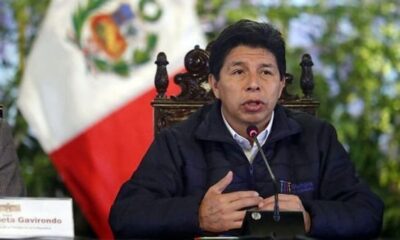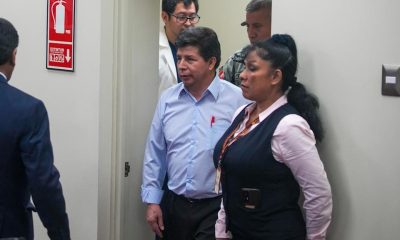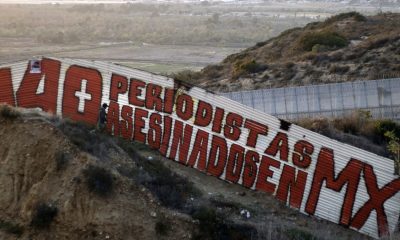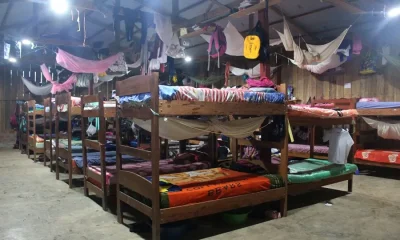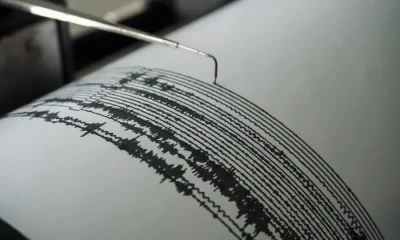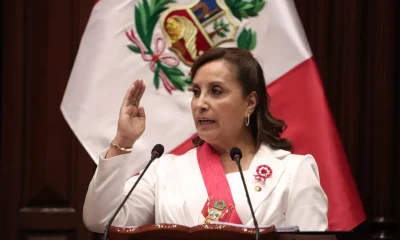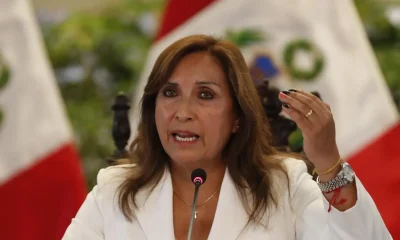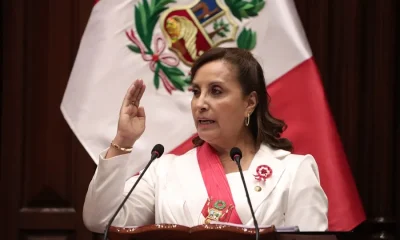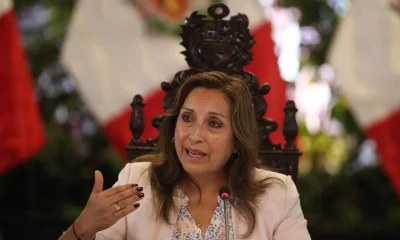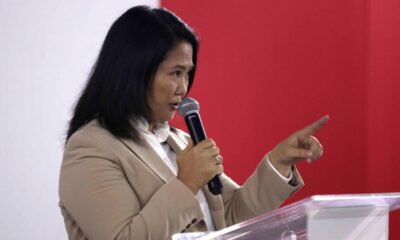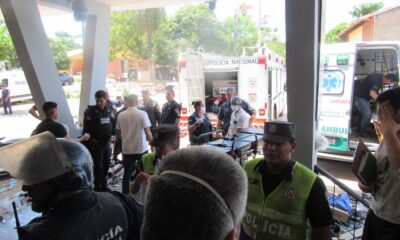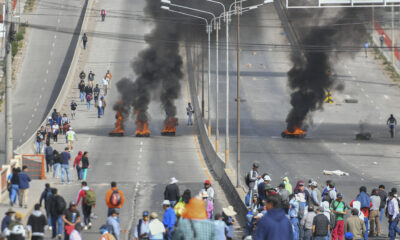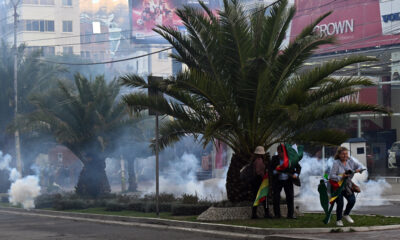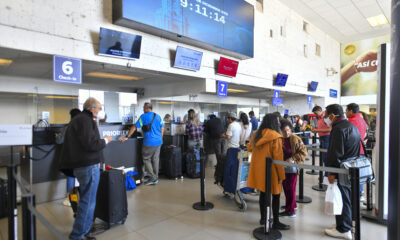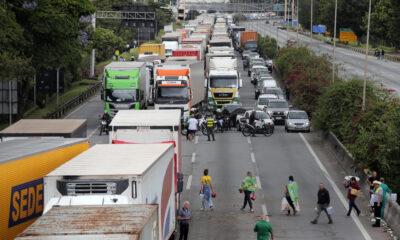International
Peru protesters mourn their dead as clashes continue
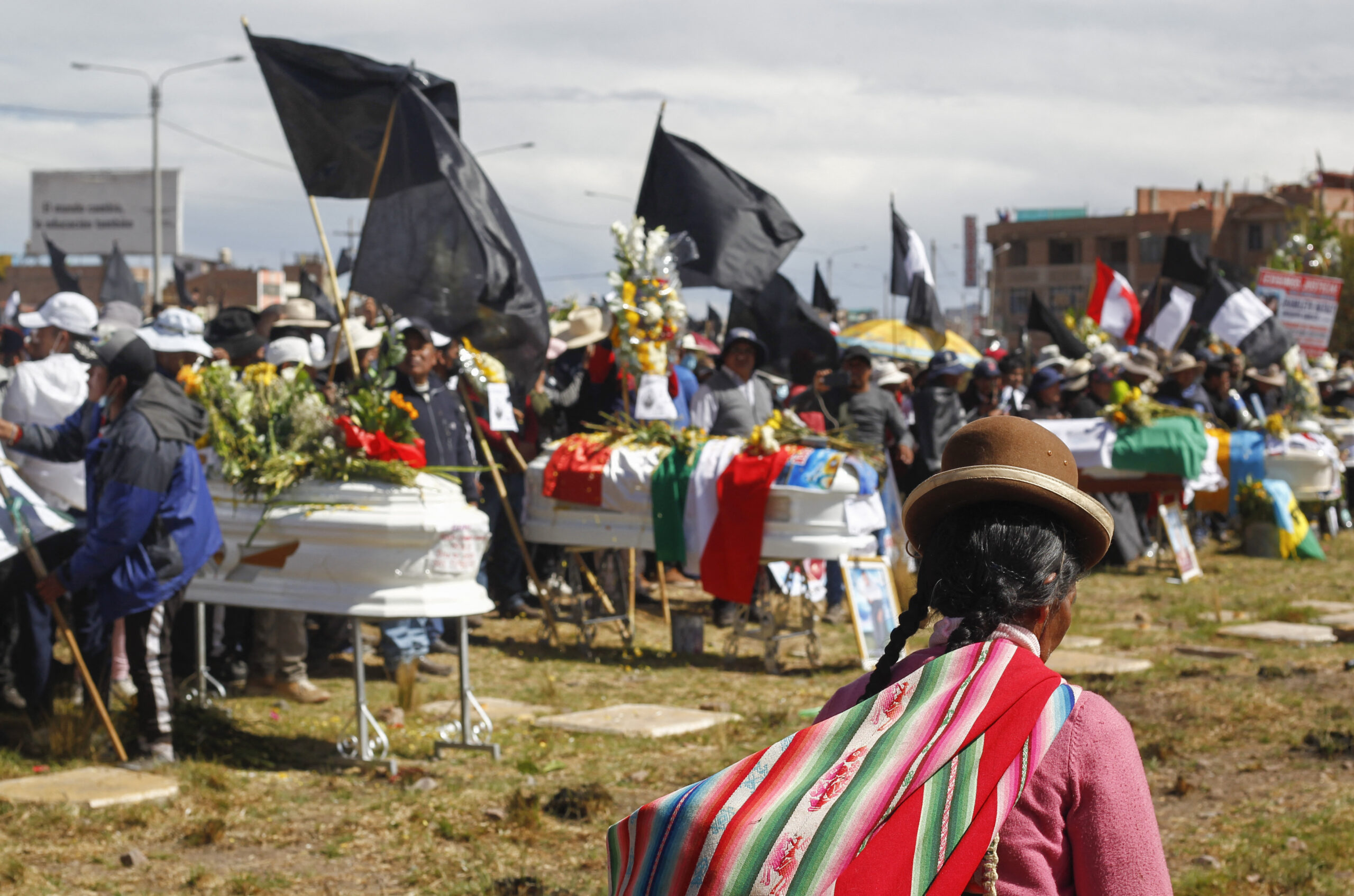
January 12 | By AFP |
Demonstrators in Peru blocked roads and held mass funerals on Wednesday for those killed in violent anti-government protests that have gripped the country for weeks, as the United States called for “restraint” on both sides.
The deadly clashes have spread to the tourist city of Cusco, the ancient capital of the Inca Empire, where one protester was killed Wednesday and more than 30 people, including 19 police officers, were wounded.
In total, at least 41 people have died in more than a month of demonstrations demanding the resignation of President Dina Boluarte, who took over after the ouster and arrest of her predecessor Pedro Castillo on December 7.
The violence has drawn a rebuke from the United Nations, and a delegation from the Inter-American Commission on Human Rights (IACHR) arrived in the country Wednesday to investigate the protests and accusations of political repression.
On Tuesday, Peru’s prosecutor’s office said it was opening a genocide investigation against Boluarte and other top officials as a result of the deaths.
The epicenter of the protests has been in the Aymara region of Puno, on the border with Bolivia, where thousands of residents walked the streets of Juliaca on Wednesday with the coffins of 17 civilians who were killed earlier this week.
Each coffin bore a photograph and was draped in a Peruvian flag.
“Dina killed me with bullets,” read the white coffin of Edgar Huaranca, carried on the shoulders of six family members.
Dominga Hancco held a portrait of her young daughter — shot dead during a protest.
“She was walking and only complained that her belly hurt,” she told AFP. “A few minutes passed and she fell, no one noticed how (the bullet) entered.”
The government has imposed a three-day curfew on the Andean region in a bid to calm the tensions, while also declaring a day of mourning on Wednesday for those killed.
In Cusco, demonstrators tried to reach the city’s airport after mobilizing to demand the president’s ouster.
Police fired tear gas to disperse the crowd, with protesters responding by throwing stones. Some demonstrators held up street signs as shields against projectiles fired by security forces.
The ombudsman’s office said one protester had been killed, identifying him on Twitter as Remo Candia Guevara, the president of a local community group.
“We demand an immediate investigation to find those responsible for the death and proceed to the respective sanction,” it added.
In Arequipa, Peru’s second city, hundreds also marched against the government, while in Tacna, on the border with Chile, an indefinite strike began, marked by episodes of vandalism.
Rights probe launched
The regional governments of Puno and Cusco are demanding Boluarte step down as a first step to resolving the crisis.
Puno began an indefinite strike a week ago to demand the resignation of Boluarte, immediate presidential and legislative elections and the convening of a Constituent Assembly.
The IACHR commissioners were received by Boluarte at the Government Palace, the seat of the Peruvian executive.
“We are going to verify the human rights situation. We regret the loss of human life during the demonstrations,” said head of mission Edgar Stuardo Ralon, whose delegation will remain in Peru until Friday.
They will meet with authorities, victims and their relatives in Lima, Ica and Arequipa.
The United States on Wednesday urged restraint and the minimal use of force, and backed an investigation into the dozens of deaths.
“We recognize the right for peaceful protest and expressing grievances through democratic channels, and call for calm, dialogue and for all parties to exercise restraint and non-violence,” a State Department spokesperson said.
International
Federal Judge Blocks Trump Policy Allowing Deportations to Third Countries

A federal judge ruled on Wednesday that the policy of U.S. President Donald Trump’s administration allowing immigration authorities to deport foreign nationals to third countries without prior notice or the opportunity to object is unlawful. The decision marks another legal setback for the administration on immigration matters.
Judge Brian Murphy of the U.S. District Court for the District of Massachusetts struck down the regulation issued last year, which stated that Immigration and Customs Enforcement (ICE) was not required to notify migrants if they were to be sent to countries other than the one listed in their removal order, provided that receiving nations offered assurances they would not face persecution or torture.
Murphy ordered the measure vacated but granted a 15-day delay before the ruling takes effect, giving the Trump administration time to file an appeal.
In his decision, the judge concluded that the policy violates federal immigration law and migrants’ due process rights. He also questioned the lack of transparency surrounding the alleged assurances provided by receiving countries, stating that “no one really knows anything about these supposed ‘assurances.’” He added, “It is not right, and it is not lawful.”
The ruling follows several legal disputes involving deportations to third countries. Last year, the executive branch deported more than 200 Salvadorans to a maximum-security prison in El Salvador, invoking an old wartime law. The White House also held talks with Costa Rica, Panama, and Rwanda about receiving migrants who are not citizens of those countries.
In May, the same judge determined that the government violated a court order when it attempted to remove a group of immigrants with criminal records to South Sudan without prior notice or an opportunity to raise claims of fear of persecution.
Although President Donald Trump took the case to the U.S. Supreme Court, which temporarily allowed the deportations to resume while a final decision was pending, the White House is expected to again appeal to higher courts to overturn this latest judicial ruling.
International
Cocaine Production Surges 34% in 2023 as Market Expands into Africa and Asia

The global cocaine market is the fastest-growing among all illicit drugs worldwide, the International Narcotics Control Board (INCB) warned on Thursday in its annual report presented in Vienna.
The body attributes this expansion to the sustained rise in production in South America — particularly in Colombia — as well as increasing demand in emerging regions such as Africa and Asia.
According to the report, global cocaine production surpassed 3,700 metric tons in 2023, marking a 34% increase compared to 2022. This growth is largely driven by the expansion of illicit coca cultivation in Colombia and the greater production capacity of clandestine laboratories.
The INCB noted that the market has not only grown in volume but has also diversified and become more globalized. While Europe and North America remain the primary destinations, trafficking routes now reach “all regions of the world,” including Africa — traditionally considered a transit zone — and Asia, where the presence of cocaine was previously marginal.
In Western and Central Europe, for the fifth consecutive year, seizures in 2023 exceeded those in North America, consolidating the region as the leading destination market. Between January 2019 and June 2024, more than 1,826 metric tons of drugs bound for European ports were seized, of which 82% was cocaine, equivalent to 1,487 metric tons.
The report also highlights that seizures in Africa rose by 48% in 2023 compared to 2022, reflecting the expansion of the market on the continent. Globally, the number of cocaine users increased from 17 million in 2013 to 25 million in 2023.
International
Clinton Accuses Republican Committee of Using Epstein Case to Shield Trump
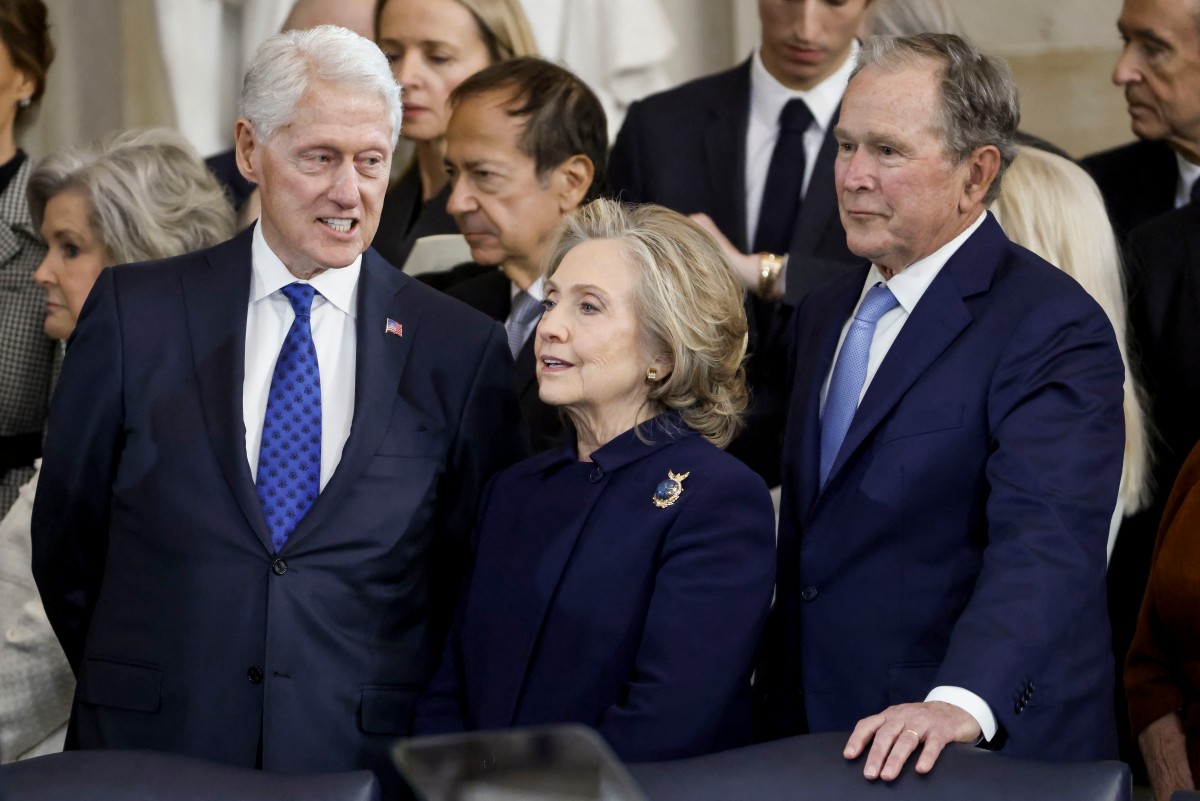
Former U.S. Secretary of State and former First Lady Hillary Clinton denied on Thursday before a congressional committee that she had ever met convicted sex offender Jeffrey Epstein in person or had any knowledge of the crimes he committed.
Clinton testified behind closed doors from New York before the House Oversight Committee. The wife of former President Bill Clinton — who is scheduled to testify on Friday — accused the Republican-controlled committee of summoning her in order to “distract attention” and “cover up” the activities of President Donald Trump, who had past ties to Epstein.
“I do not recall ever meeting Mr. Epstein. I never flew on his plane nor visited his island, his homes, or his offices. I have nothing further to add,” she stated.
The former Secretary of State emphasized that she “had no idea about the criminal activities” of the financier, who died in prison in 2019. “Like any decent person, I was horrified when I learned of his crimes,” she said.
Clinton described the Epstein case as “a tragedy” and “a scandal” that deserves “a thorough investigation,” but criticized the committee for failing to summon what she called the truly relevant individuals.
“Instead, you have asked me to testify, knowing that I have no knowledge that would serve your investigation, with the purpose of distracting from President Trump’s activities and shielding him despite the legitimate demand for answers,” she said.
The questioning, conducted behind closed doors in Chappaqua, New York — where the Clintons reside — took place one day before former President Bill Clinton was scheduled to appear at the same location.
Although the Clintons initially declined to testify before Congress, the threat of being held in contempt ultimately led the former presidential couple to agree to appear and explain their relationship with Epstein.
-

 International2 days ago
International2 days agoFamily of “El Mencho” Seeks Return of Body After Deadly Military Operation
-

 International2 days ago
International2 days agoLarry Summers Steps Down from Harvard Role Amid Epstein Controversy
-

 International2 days ago
International2 days agoIran’s President Optimistic Ahead of Geneva Nuclear Talks with U.S.
-

 International4 days ago
International4 days agoOver 40 Million Affected by Major Snowstorm in Northeastern U.S.
-

 International2 days ago
International2 days agoStephen Hawking Photo Appears in Newly Released Epstein Documents
-

 International2 days ago
International2 days agoBill Gates Admits “Serious Mistake” Over Epstein Ties
-

 International4 days ago
International4 days agoNine People Killed in Two Armed Attacks in Manabí, Ecuador
-

 International15 hours ago
International15 hours agoCocaine Production Surges 34% in 2023 as Market Expands into Africa and Asia
-

 International15 hours ago
International15 hours agoFederal Judge Blocks Trump Policy Allowing Deportations to Third Countries
-

 International15 hours ago
International15 hours agoClinton Accuses Republican Committee of Using Epstein Case to Shield Trump



























